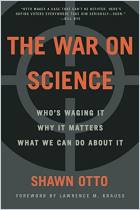Únase a getAbstract para acceder al resumen.

Únase a getAbstract para acceder al resumen.
Arthur Lupia
Uninformed
Why People Know So Little About Politics and What We Can Do About It
Oxford UP, 2015
¿De qué se trata?
Want to persuade an ideological foe? Forget the policy points and look to biology.
Recommendation
Political scientist Arthur Lupia’s intriguing study argues that the human brain isn’t really designed to take in new information. It won’t adapt to information that doesn’t comply with its preconceived biases. While you may be tempted to think of the latest partisan discord as new and unusual, it turns out that everyone might be hardwired with some degree of ideological stubbornness. Lupia aims his message at a group he calls “civic educators” – teachers, journalists, religious leaders, and others. While always politically neutral, getAbstract recommends his manual as a useful guide for communicators, teachers and managers seeking insight into how people learn and listen and what information they will accept or reject in these polarized times.
Summary
About the Author
Arthur Lupia, a professor of political science at the University of Michigan, chairs the National Research Council Roundtable on the Communication and Use of Social and Behavioral Science. He has written extensively in the field and is the co-author of The Democratic Dilemma.



















Comment on this summary